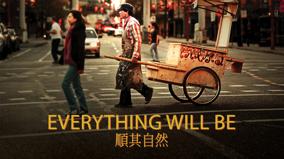In the Shadow of Gold Mountain (English and Mandarin Subtitles)
Karen Cho, a fifth-generation Canadian of mixed heritage, discovered that half her family wasn't welcome in the country they called home. While Canada encouraged and rewarded immigration from Europe, it imposed laws that singled out the Chinese as unwanted and unwelcome. Cho's film, In the Shadow of Gold Mountain, takes her from Montreal to Vancouver to uncover stories from the last living survivors of the Chinese Head Tax and Exclusion Act. This dark chapter in our history, from 1885 until 1947, plunged the Chinese community in Canada into decades of debt and family separation. At the centre of the film …

Brainstorm what students know about Chinese immigration and the Head Tax. Identify the complaints of the white government as more Chinese labourers came to Canada. Discuss the long-lasting and devastating results of discrimination directed toward the Chinese immigrants. Comment on the importance of World War II and the Canadian Charter of Rights and Freedoms as catalysts for change in the Chinese community.

















